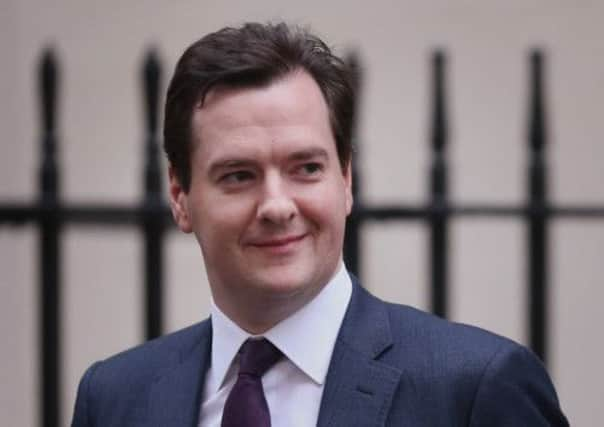Leaders: Lack of detail is poor currency in pound debate | NHS out of tune on whistleblowing


Today, that debate takes a step forward with the publication of a paper by the UK Treasury that looks the issue. Not coincidentally, the Scottish Government today announces its response to a working group report on currency, which was published by the Fiscal Commission established by Alex Salmond.
It is of little surprise that Chancellor George Osborne, in Scotland today to launch the Treasury paper, and SNP finance secretary John Swinney, who has responded to the working group, draw diametrically opposed conclusions.
Advertisement
Hide AdAdvertisement
Hide AdMr Osborne will today claim that the Treasury analysis proves the unionist status quo is the best option. Mr Swinney endorses the fiscal commission working group’s idea that joining a Sterling zone would provide Scotland the “full flexibility to set tax and spending decisions” to suit Scotland’s economy.
So far, so predictable. However, there was a sting in the tail from the Treasury with the heavy hint that the UK government would refuse to allow an independent Scotland to joint the Sterling zone should Scots vote to end the 300-year-old union. How should we respond to this? With a large pinch of salt. For if Scots voted to become independent, a Scottish government would have a mandate to negotiate on the issue of a currency. Equally, the government of the rest of the UK (rUK) would have a responsibility to respect the outcome of the referendum and negotiate in good faith.
This is not to say any talks would be a cake walk, or that the rUK would not play hard ball, but it is unsophisticated for the current UK government to take such an absolutist position when, in the interests of economic political stability, a single currency might be the best option for both sides.
However, this brings us to the nub of the matter. The Treasury argues that in joining Sterling there would be formal constraints on Scotland, similar to those imposed on countries in the euro. This echoes the fiscal commission, which said an independent Scotland will have to impose strict limits on spending and agree borrowing curbs with the rest of the UK.
So what then are the UK and the Scottish governments arguing over? There is, whether they admit it in public or not, a large amount of agreement on the restrictions which being in the Sterling zone would impose on Scotland. Yet Mr Swinney has never been completely clear on what he means exactly by flexibility, and the UK government has not said precisely what the constraints imposed on Scotland would be.
It seems clear that what we have now, particularly from London, are negotiating stances. However, we need those positions to be more detailed before October 2014.
NHS out of tune on whistleblowing
What use is recognition of whistleblowers in the health service, when employees do not know their legal rights when they witness something wrong? The question is prompted by a poll conducted on behalf of the Royal College of Nursing which found a troubling difference between nurses north and south of the Border on the issue.
In Scotland, RCN members were not as aware as their English counterparts of the legal protection for employees who raise concerns about wrong doing. They were also more likely to have been discouraged from raising concerns or simply told not to do so. These findings are a cause for concern for while the NHS is, generally, a wonderful service, it is not perfect, as recent reports by Healthcare Improvement Scotland, the inspections body, have shown. Often those who are best placed to report problems are the front-line staff, including nurses, and it is worrying that, with the poll finding 64 per cent had personally raised fears about patient safety, many do not know their rights or feel intimidated.
Advertisement
Hide AdAdvertisement
Hide AdResponding to the survey, health secretary Alex Neil said the Scottish Government believed all NHS workers should feel they could raise concerns confidentially, and be reassured health boards will listen. It is clear from the response to this poll that Mr Neil’s commitment to whistleblowers, which we do not doubt, is not shared by nurses themselves, possibly because they feel intimidated by managers. The minister should reflect on this and make sure health boards take their responsibilities to whistleblowers more seriously. It is in the patients’ interests that they do so.